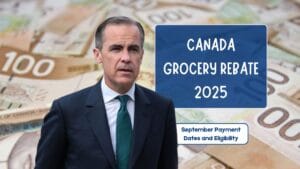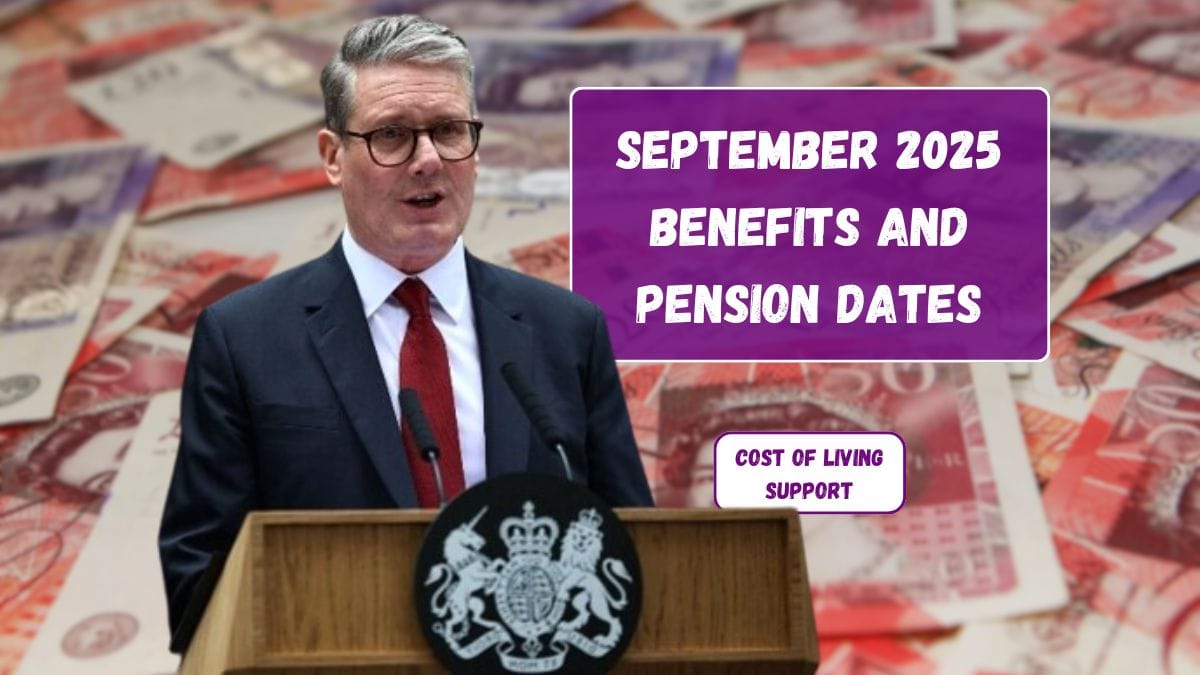As the summer holidays draw to a close, many families in the UK may breathe a slight sigh of relief. However, for millions, the cost-of-living challenge is still very real. Rising prices, stagnant wages, and high household bills continue to put pressure on everyday budgets, leaving many wondering when their next benefit or pension payment will arrive.
September 2025 brings some important updates on payment schedules, new support schemes, and the wider outlook for benefits and pensions.
Benefit Dates
There are no bank holidays in September 2025, which means benefits will be paid as usual. Payments include:
 Universal CreditState PensionPension CreditChild BenefitDisability Living Allowance (DLA)Personal Independence Payment (PIP)Attendance AllowanceCarer’s AllowanceEmployment Support Allowance (ESA)Jobseeker’s AllowanceIncome Support
Universal CreditState PensionPension CreditChild BenefitDisability Living Allowance (DLA)Personal Independence Payment (PIP)Attendance AllowanceCarer’s AllowanceEmployment Support Allowance (ESA)Jobseeker’s AllowanceIncome Support
If you’re unsure about payment frequency or methods, details are available on the UK government’s benefits page.
The Department for Work and Pensions (DWP) is continuing its transition of all legacy benefits into Universal Credit, with full migration expected by January 2026.
Pension Dates
The basic state pension is paid directly into bank accounts, normally every four weeks. The exact day depends on the last two digits of your National Insurance number:
 NI Number EndingPayment Day00–19Monday20–39Tuesday40–59Wednesday60–79Thursday80–99FridayBenefit Increases
NI Number EndingPayment Day00–19Monday20–39Tuesday40–59Wednesday60–79Thursday80–99FridayBenefit Increases
In April 2025, working-age benefits increased by 1.7 percent, matching inflation from September 2024. Meanwhile, state pensions rose by 4.1 percent in line with the triple lock, giving pensioners an extra £472 per year.
Looking ahead, Labour’s welfare bill means all Universal Credit claimants will see above-inflation rises starting April 2026. However, the health-related element of Universal Credit for new claimants will fall from £105 to £50 per month, frozen until 2029.
Other Support
Households struggling this September may also be eligible for additional help:
Budgeting advance loans – Interest-free loans for emergencies, repaid from Universal Credit over up to two years.Discretionary Housing Payment (DHP) – Help with rent or housing costs, available through local councils.Household Support Fund (HSF) – Grants from councils for essentials like food, bills, or appliances, running until March 2026.Charitable grants – Search tools like Turn2us can identify support depending on your circumstances.Energy provider schemes – Many suppliers, including British Gas and EDF, offer hardship grants or bill support.Council tax reduction – Depending on your benefits and income, you may qualify for up to 100 percent relief.Free childcare – From September 2025, all children under five will qualify for 30 hours of free childcare.Energy Prices
Ofgem’s energy price cap dropped from £1,849 to £1,720 for July–September 2025, a 7 percent fall. The cap for October–December will be announced at the end of August.
Cost of Living Payments
The Cost of Living Payment scheme, which ran between 2022 and early 2024, has not been extended into 2025. Households will need to rely on existing benefits and council-based support.
While September 2025 does not bring major changes to benefit payment dates, the landscape of financial support is shifting. Families and pensioners should ensure they are claiming everything they are entitled to and look into council schemes or grants if struggling with essentials.
FAQsWhen are benefits paid in September 2025?
On regular dates, no bank holiday changes.
What day is my state pension paid?
It depends on the last two digits of your NI number.
Will benefits rise again in 2026?
Yes, Universal Credit will increase above inflation.
Is the Cost of Living Payment still available?
No, it ended in February 2024.
How can I get extra help with bills?
Apply for council schemes, grants, or energy provider support.

